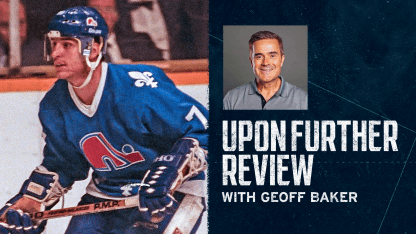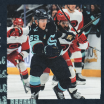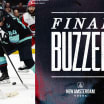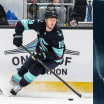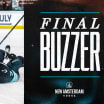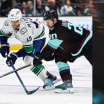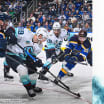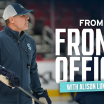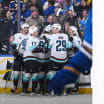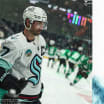Right before Dave Tippett became a longtime NHL coach and later, a Kraken senior adviser and consultant, he was behind the bench of a minor pro International Hockey League squad in Houston that was the league’s top team, cruising towards the playoffs.
But even then, Tippett wanted trade deadline reinforcements during that 1998-99 campaign to ensure he had the right stuff for beyond the regular season and a deep playoff run. And primary among the players he traded for? Newly named Kraken head coach Lane Lambert.
“On just about every team he played for, he was one of those guys you used to call a ‘glue guy’,” Tippett told me Friday from his home in Arizona. “He wasn’t a top-line guy. But he did just about everything right.”
And that’s some of the underrated stuff about winning games at the pro level. Sure, you can have superstar players who put pucks in the net. But once you get off the top line or two, if the rest of the team doesn’t play the game right, the group typically won’t get far.
Tippett paired Lambert, by then nearing the end of a pro career that included 283 games with the Detroit Red Wings, New York Rangers and Quebec Nordiques, on his third line with former NHL journeymen Mark Lamb and Jason Ruff. The Houston squad, known as the Aeros, finished with a league-best 54-15-13 record. But the playoffs – as Tippett expected before bulking up at the deadline – were a much different animal.
After an opening-round bye, the Aeros needed to go the distance in each of the next two series before reaching the first Turner Cup final in franchise history. Then, in the championship round, they again needed the full seven games before dispatching the Orlando Solar Bears, 5-3 at home, in front of a sold-out crowd of more than 16,000 fans.
To this day, Tippett – who used that title season as a springboard to a long NHL coaching career – feels the late-season add-ons of Lambert and a few others made all the difference.
“The more players you have on your team that have a true knowledge of what it takes to win, the better chance you have,” Tippett said. “We were the best team in the league by a good margin at the trade deadline. Teams were going to add players to try to get close to us. And so, I also added some and we won the championship.”
Tippett knew Lambert’s family and played Tier II Junior “B” hockey with one of his brothers in their native Saskatchewan. He said there was never anything overly complex about Lambert’s game as a “utility forward” that could be relied upon in multiple situations. In fact, his reliability is how Lambert made his mark.
“He wasn’t a big points getter,” Tippett said of Lambert, who’d scored 59 goals his final junior season with Saskatoon but never more than 20 in an NHL career spent perfecting the smaller details. “But in the guts of a game when you’re protecting a lead, he was a valuable, valuable player. He was a smart player and really competitive. He knew what it took to win and was willing to do whatever it took to help the team win.”
And those traits have shaped Lambert’s coaching philosophy.

